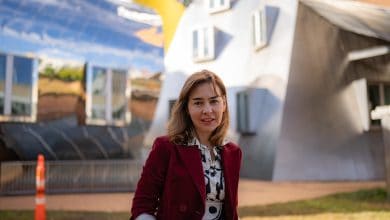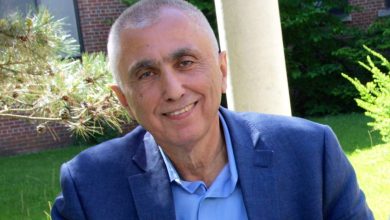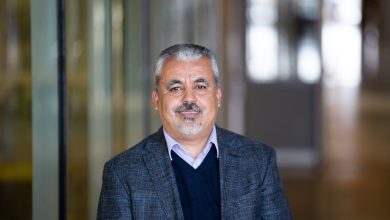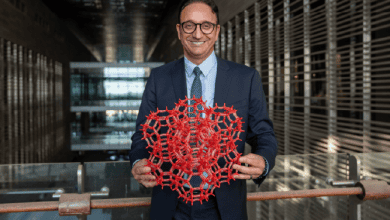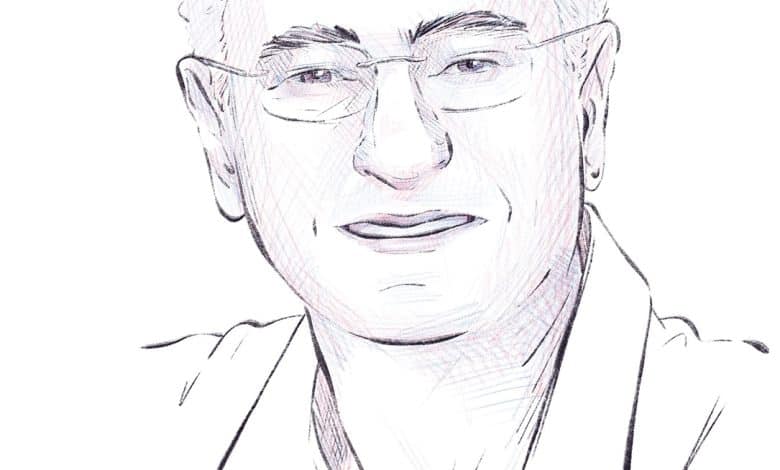
Nabil G. Seidah knew from a young age that he wanted to pursue a career in medical research. “I was always interested in medicine,” he said. “Since I was 4 years old, I wanted to do something to help patients.”
Now in the twilight of his career, Seidah has spent decades on the frontline of cutting-edge neurobiology and biophysics research with significant implications for treating dozens of diseases. In 2021, the Kuwait Foundation for the Advancement of Sciences (KFAS) awarded him the Kuwait Prize in the field of Applied Sciences – Applied Medical Sciences.
Growing up in Egypt, Seidah said his family medical history influenced his desire to work with patients and solve complex medical problems. “I had a grandmother who was schizophrenic, and I have a lot of cancer in my family,” he said. As a result, Seidah developed specific interests in studying neural regulation and the formation of cancerous tumors.
He earned a Bachelor of Science degree at Cairo University in 1969 before moving to the United States, where he studied at Georgetown University. Seidah completed his Ph.D. in neurobiology at Georgetown in 1973.
في الـعـام الذي تلاه، قَـبِـلَ منـصبًا في معهد مونتريال للأبحاث الإكلينيكيّة Montreal Clinical Research Institute (اختصارًا: المعهد IRCM). عندما وصل صيدح إلى المعهد IRCM عـام 1974، تـحـوّل تــركـيزه الـبـــحـثي. قال: “بدأْتُ العمل في الفيزياءالبيولوجية”وأضاف:”كنْتُ أحاول فـهم كيـفية عملة بنى البروتينات المختلفة التي تنظم الوظائف العصبـية”. عمل مديرًا لمخـتبر الكـيمـياء البيـولـوجـية للـغدد الـصم والأعصاب Biochemical Neuroendocrinology Laboratory في المعهد IRCM منذ عام 1983.
The working environment at IRCM suits Seidah, who said he enjoys collaborating and working in a clinical research environment. These are hallmarks of IRCM, where some of Seidah’s closest colleagues are medical doctors. “I bring the fundamental knowledge of the disease, and the doctors bring the patients,” he said. “Together, we make a team.”
Through these collaborations, Seidah and his colleagues further their understanding of various diseases, develop drug and treatment options, and run clinical trials. “The objective is to solve problems and to understand the mechanisms behind the disease,” Seidah said.
This environment has also inspired him to develop creative solutions. “Being in a clinical research institute forced me to really think out of the box and not just think in simple terms,” he said. Opportunities to see patients treated on the institute’s first floor, not far from his office, serve as a reminder of the importance of his work and a constant source of motivation.
Seidah’s determination to help patients and further his field of research has brought him great success; he has published dozens of papers, mentored more than 150 students and trainees, and helped further medical understanding and develop treatments for several diseases.
One of his earliest successes was the co-discovery of the human beta-Endorphin in 1976. Then in 1990, after more than a decade of effort, Seidah had a breakthrough that would guide the rest of his career; he began to unravel the mystery of the convertases, a new family of proteolytic enzymes. He has now discovered seven of the nine convertases identified so far.
These enzymes are involved in countless diseases, including Alzheimer’s, atherosclerosis, AIDS, cancer, heart disease, and diabetes. Seidah said he has since worked on a vast range of issues because he allows his findings to lead him from one project to the next. “I let the enzymes direct me,” he said.
Two of his first solo discoveries, enzymes PCSK1 and PCSK2, help regulate some of the hormones involved in schizophrenia. Understanding these enzymes alone is not enough to provide robust solutions to those with schizophrenia, like Seidah’s late grandmother. But he said identifying the enzymes “has enhanced our understanding,” and they will be critical to developing new treatments in the future.
One of Seidah’s most high-profile discoveries is the enzyme PCSK9, which he identified for the first time in 2003. The enzyme is linked to cases of familial hypercholesterolemia or high cholesterol, which increases the risk of heart disease, heart attack, and stroke. Researching the role of PCSK9 in patients with high cholesterol has led to new drugs to treat the issue, with the potential to improve the lives of millions worldwide.
Research on another enzyme in the family, PC3, even has applications to the COVID-19 pandemic. “It turns out that it is a major player in activating the SARS-COV2 virus,” said Seidah. “These nine enzymes play so many roles.”
During his career, Seidah has been honored with several awards recognizing his pathbreaking discoveries and commitments to research and patient care. He said the Kuwait Prize is among the awards that mean the most to him. Each year, KFAS awards the Kuwait Prize to scientists of Arab descent working in various fields to honor their lifetime achievements. “Because I am from Egypt, the prize coming from an Arab country is very rewarding,” he said. “I have prizes from the United States, Canada, and France, but this is the first from the Arab world.”
Seidah said he hopes the recognition will lead to new opportunities to collaborate with scientists in Kuwait and elsewhere in the region. “It could be a great opportunity for the Arab world to get together and put our ideas together,” he said. In the meantime, Seidah continues to research, lecture, mentor, and publish — with no signs of slowing down.
“I’m enjoying it,” he said. “I enjoy the sense of discovery, the excitement, the feeling of doing something nobody has done before.”
By Marianne Dhenin

